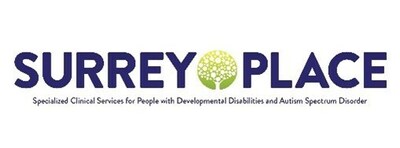Subjects: PDT, DIS, DEI
Transforming Care: New Toolkit Equips Physicians to Support Mental Health in Adults with Intellectual Disability
TORONTO, Feb. 27, 2024 /CNW/ - Nearly 1 in 2 people with intellectual and developmental disabilities (IDD) experience a mental health issue in their life. Often family physicians or primary care providers are the entry points to accessing specialized care and support. However, most family physicians or clinicians are not specifically trained to serve individuals with IDD. The new online mental health toolkit, developed by the Developmental Disabilities Primary Care Program (DDPCP) at Surrey Place, complements the Canadian guidelines on primary care for adults with IDD, aiming to bridge critical gaps in specialized supports.
When individuals with IDD transition from pediatric to adult health care, they do not have access to specialized teams they once had. For those who need mental health services, it can be especially tough as different parts of the health care system often do not work together in a coordinated way. This makes the system difficult to navigate and hinders timely access to health care, which can cause a young person's problems to get worse. Youth with IDD tend to have higher rates of visits to emergency rooms and psychiatric hospitalization than youth without disabilities. Family physicians can play a critical role in the coordination of mental and physical care, as well as social support, for adult clients with IDD.
During physician and patient interactions, articulating pain points or stressors is key to identifying what types of care might be needed for patients. For individuals with IDD, this itself can be a barrier. "Understanding the diverse ways individuals with IDD express themselves is pivotal," says Dr. Elspeth Bradley, psychiatrist and clinical of the mental health toolkit. "Our job as clinicians is to be attuned to the individualized ways in which our patients express themselves and recognize their needs through a safe and empathetic approach."
Although physicians and clinicians are primarily trained to recognize behaviours and engage optimally with children with IDD, most are not specifically trained to serve adults with IDD. "The tools are a way to systematically look at the variables that might affect the behaviour of adults with IDD," says Dr. Kerry Boyd, psychiatrist and clinical co-lead of the mental health toolkit. "Emotional stressors and trauma can show up through behaviour and appearance. These tools help recognize these signs in our clients and help us communicate with CARE?clearly, attentively, responsively and optimally engaging with clients."
The mental health toolkit was designed for busy clinicians, by clinicians, as a quick and easy resource to address this gap in better understanding and supporting adult patients with IDD. "Family doctors are expected to know so much. We need easy-to-read, easy-to-interpret, decision-making supports and clinical tools," says Dr. Ullanda Niel, Chief Family Medicine at Surrey Place and a co-author of the toolkit. "Family doctors, psychiatrists, caregivers and people with IDD came together to craft these tools with the family physician's office in mind. This toolkit assists with crisis management, addressing undifferentiated behavioural changes, and trauma-informed care, supporting the multifaceted aspects of mental health care for adults with IDD."
A significant part of the identification, treatment and prevention of emotional and behavioural concerns requires creating trauma-informed settings and environments to ensure effective and optimal health outcomes. It is well documented that people with IDD often experience trauma in their daily lives, including exposure to adverse life events, abuse, neglect, exploitation as well as negative or painful effects from medication and medical procedures, at much higher rates than any others in the general population. "The prevalence of mental health conditions among individuals with IDD is not inherently higher but often stems from preventable circumstances," says Dr. Bradley. There is a risk of ascribing behaviours to a person's disability, while the person is in fact expressing trauma or emotional distress about what is happening in their lives.
"Imagine you go see your doctor, but they speak an entirely different language from you," explains Dr. Bradley. "While they're busy explaining things and checking your body, you can't understand what they're saying or why they're doing it. It's intrusive and stressful. In these ways, we are participating in their distress. Prevention of trauma in health care lies in learning appropriate ways to communicate and care for our clients with IDD." The toolkit promotes a trauma-informed approach to care and offers guidance for clinicians in determining underlying factors of distress. It also includes tools for adults with IDD and those who support them to feel better prepared for when a crisis might happen.
The mental health tool kit is available at ddprimarycare.surreyplace.ca/tools-2/mental-health/
About Surrey Place: Surrey Place is a leading provider of services and support for individuals with confirmed or suspected developmental or intellectual disability. With over 60 years of experience in the field, Surrey Place is committed to providing exceptional care and support to help individuals achieve their full potential and lead fulfilling lives.
About Developmental Disabilities Primary Care Program (DDPCP): The Developmental Disabilities Primary Care Program is a program of Surrey Place, Toronto. The program aims to develop standards of care, resources and partnerships to improve primary health care for adults with intellectual and developmental disabilities.
SOURCE Surrey Place
These press releases may also interest you
|
News published on and distributed by:




